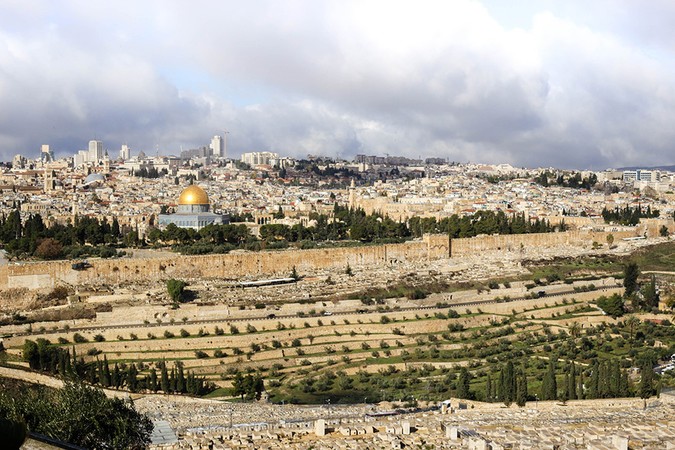Still. Silent. And seemingly abandoned.
I peered out the window of our massive tour bus driving on the streets of Jerusalem during my recent trip to Israel. Not a soul could be spotted on the vacant streets of the city, and only one other lone car accompanied us on the winding highways leading into one of the world’s most contested capitals.
No, Jesus had not returned. Nor had a controversially issued Trumpannouncement scared the population into hiding.
It was Shabbat.
“This is what they call a ‘Shabbat atmosphere,’” our Israeli tour guide, Assaf Boker of Boker Tours, explained.
SHABBAT EXPLAINED
Shabbat, or the Jewish Sabbath, is a day of rest that takes place from sundown Friday to sundown Saturday. In Jerusalem—where nearly two out of three people are considered Jewish and one in three people classify themselves among the more conservative ultra-Orthodox Jews—the Sabbath is observed with seemingly far more regard and strictness in comparison with other Israeli cities.
According to “halacha,” or Jewish religious law, anything considered to be “work” is prohibited on the Sabbath. This means no cooking, driving, cell-phone or laptop usage, and an action as minor as a flip of a light switch or a press of an elevator button is considered breaking Sabbath rest.
This meant the continental breakfast in my hotel that Saturday morning was comprised of pre-prepared foods that required no cooking, all public transportation was shut down, and I found myself running down 16 flights of stairs. The alternative would have been embarking the hotel’s “Shabbat Elevator,” an elevator shaft that stops at every floor, allowing people to hop on and ride until it reaches your desired location without so much as pushing a button, making it Shabbat-safe, but likewise dreadfully slow.
As I reached the hotel lobby panting, I could not help but think that I surely felt like I was doing more work than pressing a button. My first Shabbat experience caused me to think: this was the exact legalism regarding the Sabbath that Jesus had warred against in the same sacred city 2,000 years prior.
BREAKING BREAD
Apart from the restrictions, another core element to the Jewish Shabbat is the Shabbat dinner —a meal shared with family after sundown on Friday night. My tour group and I were invited to share a traditional Shabbat meal with Neil and Aliza Gillman, a modern Orthodox Jewish couple from England and the United States, and their six children.
To start off the traditional Shabbat dinner, we were invited to take part in the traditional hand-washing, in which a traditional bowl is used to pour water over each hand three times. After, in accordance with custom, we then refrained from touching anything or talking until the meal commenced. The seemingly strange rituals at my first Shabbat dinner only reinforced my wary sentiments of the holiday.
CHANGE OF HEART
As the night continued, the value of the Jewish Sabbath day unfolded. I was struck with its beautiful elements and valuable lessons, especially in regards to activities reinforcing the family unit in light of the never-ceasing work flow and individualism of Western culture and, likewise, the Western evangelical Christian.
“It allows people to get re-centered in their relationships with God and with their families,” said Elijah Cohen, a senior intercultural studies major of Messianic-Jewish heritage who grew up practicing Saturday night Shabbat dinners with his family.
“I think Christians can learn that silence and solitude are not just good, but necessary in a healthy Christian life,” Cohen said. “American Christians have bought into our culture of hyperactivity and view rest as irrelevant or even immoral, so they fill every day with responsibilities and never step back and remember what’s important in life.”
Out of the list of commandments given to Moses, and later reiterated by Jesus, why have Western evangelical Christians largely regarded the exhortation to set apart a day of rest as not a command, but a mere suggestion? Perhaps we should take a cue from Jewish tradition and implement it once again.







